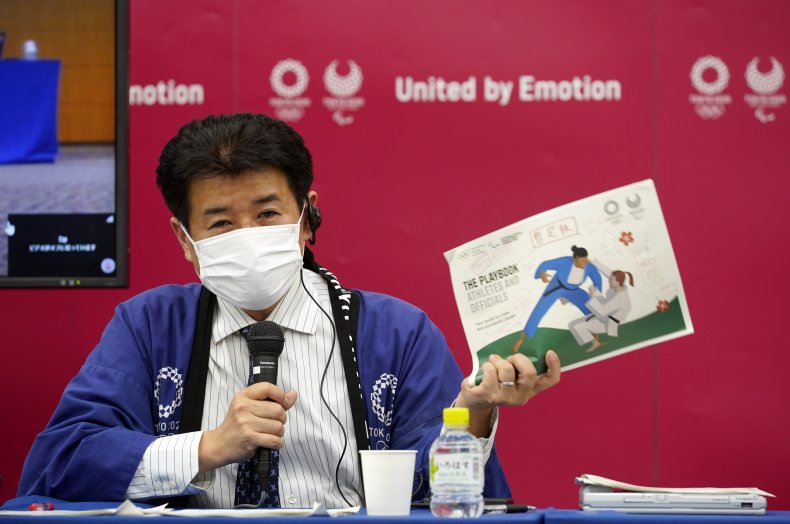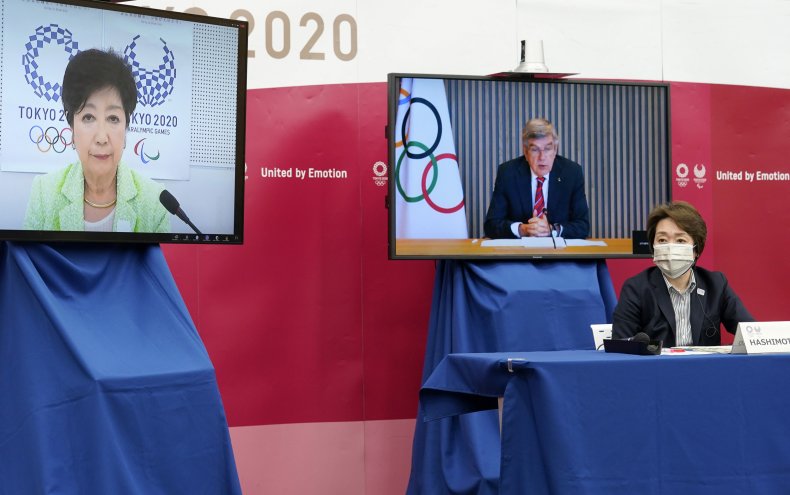[ad_1]
With the Tokyo Olympics three months away, the International Olympic Committee (IOC) and local organizers have released a 60-page second version of the athlete Playbook, the Associated Press reported.
In addition to rules about frequent testing, social distancing and event capacity, the Playbook also outlines a policy that will allow game participants to avoid the 14-day quarantine rule for entering Japan as long as they fill out a schedule listing their plans for that time period and download a tracking app.
Athletes must sign a promise that they will comply with the rules in the Playbook, whether they are vaccinated or not.
“There will be a written pledge and if that is not complied with, there will be a certain level of penalty,” said Toshiro Muto, the CEO of the organizing committee. “We expect that these people will comply with the rules because Playbooks are the rules.”
IOC President Thomas Bach defended the procedures and said the rules will be “strictly enforced.”
“The Playbooks are science- and experience-based,” he said. “They are based on, and taking into account, the latest scientific developments. They are based on the best scientific and medical expertise being available worldwide.”
For more reporting from the Associated Press, see below.

Franck Robichon/Pool via AP
Versions of the Playbook for other non-athlete groups are to be released later. And a third version will come out in June, just weeks before the Summer Olympics open on July 23.
The timing of the second edition of the Playbooks is not ideal.
Tokyo, Osaka and several others areas came under a third state of emergency this week, and the death toll in Japan from COVID-19 has passed 10,000. The numbers are good by global standards but poor compared with other places in Asia, such as Taiwan, Vietnam, Thailand or South Korea.
Tokyo recorded more than 900 new cases on Wednesday, its highest level in three months as new variants are popping up in the country.
“Yes, the situation is very difficult,” Tokyo Governor Yuriko Koike said. “We are fighting the invisible enemy.”
The state of emergency has closed department stores, theme parks, and bars and restaurants serving alcohol. It also has forced baseball games to be played in empty stadiums after having allowed fans for much of the pandemic.
Polls consistently show 70% to 80% of people in Japan think the Olympics should not be held.
Muto was asked if another postponement was possible. In the last few weeks, renewed questions about cancellation have popped up.
The IOC long ago ruled out another postponement.
“Can you really take the time for another postponement?” Muto asked rhetorically. “It’s not just a matter of taking the time, the organizers would have to prepare once again after having already spent years to prepare. It is not something that can be done that casually.”
He, of course, quashed the idea, pointing out the importance of athletes and the impossibility of securing the Athletes Village, which is a massive housing project on Tokyo Bay that has already been partially sold off.
The British Medical Journal earlier this month, under an editorial titled “Reconsider this Summer’s Olympic and Paralympic Games,” said mass gatherings such as the Olympics are still neither “safe nor secure.”
The editorial read in part: “Holding Tokyo 2020 for domestic political and economic purposes — ignoring scientific and moral imperatives — is contradictory to Japan’s commitment to global health and human security.”
Only 1% of the Japanese population has been vaccinated and that number will still be small when the Olympics open. So far, officials said, Japanese athletes have not been vaccinated.
This contrasts with many of the 15,000 Olympic and Paralympic athletes entering Japan who—encouraged by the IOC—will have shots. As will thousands of judges, officials, sponsors, media and broadcasters.
Though vaccines are available, the strategy for the Olympics is geared around holding the games in a “bubble” as if there were no vaccines.
Muto said this week that 500 nurses were being requested for the Games. Japanese television TBS on Tuesday, without citing a source, said organizers had contacted 30 hospitals to care for athletes who fall ill. Nurses groups online immediately questioned their availability, or being moved around like pawns.
Bach is expected to be in Hiroshima on May 17 to greet the torch relay, although he said last week his plans were still tentative.
Bach’s arrival would come just days after the latest state of emergency ends on May 11. Opposition lawmakers in Japan’s national legislature have suggested Prime Minister Yoshihide Suga scheduled the state of emergency to accommodate Bach.

Franck Robichon/Getty Images
[ad_2]
Source link